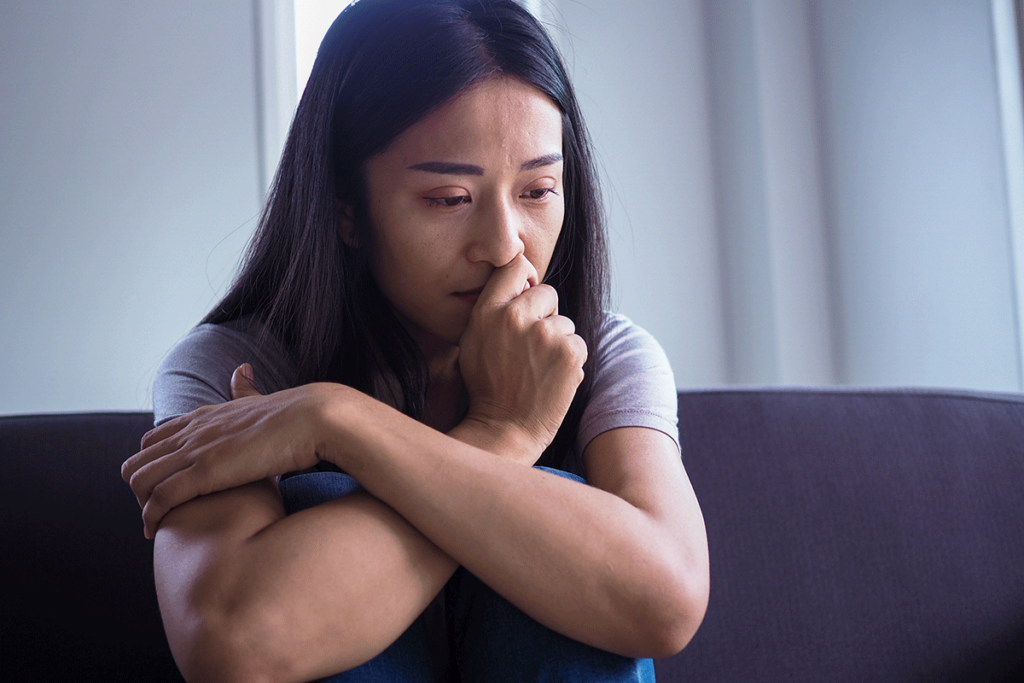Bipolar disorder not otherwise specified (BP-NOS) is the diagnostic category that mental health professionals use when describing bipolar symptoms that don’t fit the criteria for an official form of bipolar illness. As such, the category acts as a generalized depository for bipolar-related characteristics. Despite its catchall nature, a BP-NOS diagnosis is medically serious. In many cases, people who receive this diagnosis eventually develop an official bipolar condition. Even when this sort of development does not occur, the impact of bipolar-related symptoms can seriously disrupt the lives of affected individuals.
Do you want to learn more about bipolar disorder treatment? Call us today at 844.875.5609.
Bipolar Disorder Basics
Bipolar disorder is the medically correct term for manic-depression or manic-depressive illness. Along with a group of conditions called depressive disorders, it constitutes a category of mental illnesses known as mood disorders. Most people think of the condition as a single entity. However, there are actually three distinct forms of bipolar disorder, known as bipolar I disorder, bipolar II disorder and cyclothymia.
People with bipolar I disorder periodically experience episodes of an unusually aroused, energized state called mania. As well as episodes that combine features of mania with features of clinical depression. This form of the disorder also typically produces episodes of unmixed depression. People with bipolar II disorder experience depressive episodes that alternate with a limited or subdued form of mania called hypomania. People with cyclothymia experience alternating periods of hypomania and relatively mild depression that recur for a minimum of two years.
Mental health professionals in the US use bipolar disorder guidelines set forth by the American Psychiatric Association. They are found in a document called the Diagnostic and Statistical Manual of Mental Disorders. Compared to many other mental disorders, the guidelines for a bipolar disorder diagnosis are relatively strict. For instance, if a person with symptoms of bipolar II disorder experiences even a single episode of full-blown mania (rather than hypomania), he or she technically does not have bipolar II disorder, even if that manic state never reoccurs.
Bipolar Disorder Not Otherwise Specified Basics
As indicated previously, people with BP-NOS have clear bipolar symptoms but don’t meet the criteria for bipolar I disorder, bipolar II disorder or cyclothymia. In some cases, affected individuals have symptoms that strongly resemble the problems associated with these illnesses. But they lack one of the defining characteristics that doctors need to make an official diagnosis.
In other cases, they have mixed or conflicting symptoms that fall outside of the scope of the three official bipolar disorders. Situations that can lead to a BP-NOS diagnosis include the presence of manic or depressive symptoms that only appear for a day or two at a time, the presence of hypomania without corresponding episodes of depression, the presence of manic and depressive symptoms that rapidly cycle back and forth, and the presence of manic or mixed manic-depressive symptoms in someone with a history of schizophrenia or some other form of psychosis. In some instances, doctors may also decline to verify the presence of an official bipolar disorder in people who drink heavily, abuse drugs or have certain physical conditions that can contribute to significant mood alterations.
Seriousness of BP-NOS
Despite the lack of a bipolar I, bipolar II, or cyclothymia diagnosis, people with BP-NOS still have a bipolar condition. In fact, it’s not uncommon for a person who initially received a BP-NOS diagnosis to later receive a more specific diagnosis for one of the three main disorders. This can happen if doctors misidentify existing symptoms of an official disorder. However, it more typically happens when an affected individual eventually develops additional bipolar-related symptoms. Because of the provisional nature of BP-NOS, people with generalized bipolar symptoms are strongly encouraged to remain under the care of a mental health specialist and undergo periodic follow-up evaluations whenever their symptoms recur.
Considerations
If left untreated, bipolar symptoms commonly grow worse over time. In some cases, these symptoms may start to appear more frequently; in other cases, they may grow increasingly severe. Unfortunately, some people experience both of these phenomena at the same time. Since bipolar disorder not otherwise specified is not a defined collection of symptoms, doctors have no established treatment regimen for people who receive a BP-NOS diagnosis. Typically, monitoring and follow-up evaluation must suffice unless the affected individual eventually develops more symptoms. Mental health conditions that commonly appear simultaneously in people with bipolar symptoms include:
- Attention-deficit hyperactivity disorder (ADHD)
- Social anxiety disorder (social phobia)
- Post-traumatic stress disorder (PTSD)
In addition, people with bipolar symptoms often abuse alcohol or drugs and develop health problems such as heart disease, thyroid disorders, obesity, migraines, and type 2 diabetes. Often, these problems may help trigger the onset of bipolar-related symptoms; in other cases, treatments used to address bipolar-related symptoms may increase risks for these problems.
Bipolar Disorder Treatment
At Promises Behavioral Health, we’re dedicated to helping those struggling with bipolar disorder. We offer a wide variety of treatments tailored to meet the individual needs of each person. Our comprehensive care includes medication management, psychotherapy, cognitive-behavioral therapy, and lifestyle modifications like exercise, good nutrition, and stress reduction. We also provide support and education to families.
By collaborating with the family, we can help the individual build a strong network of support. As part of our comprehensive treatment, we offer access to specialists such as psychiatrists, psychologists, social workers, and therapists. With our specialized care, we can help you or your loved one find balance and stability.
Get the Help You Need From Promises Behavioral Health
If you or a loved one is struggling with bipolar disorder not otherwise specified, Promises Behavioral Health is here to help. Call 844.875.5609 today to talk to our mental health professionals. Getting treatment can make a big difference in a person’s life. Make life a little bit easier for your loved one today.

